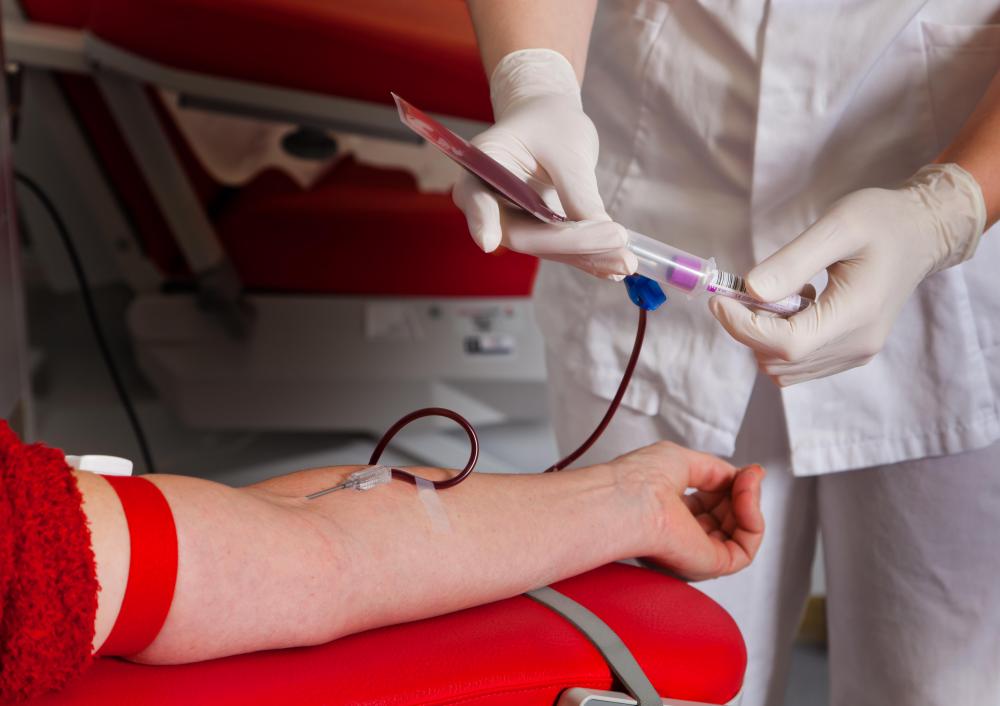At WiseGEEK, we're committed to delivering accurate, trustworthy information. Our expert-authored content is rigorously fact-checked and sourced from credible authorities. Discover how we uphold the highest standards in providing you with reliable knowledge.
What are the Different Types of Treatment for Hemophilia?
Hemophilia is a rare blood disease that prevents clotting from taking place properly. The treatment for hemophilia will vary depending on the severity of the disease and the type of hemophilia involved — hemophilia A or the much less common hemophilia B. The types of treatment for hemophilia include blood infusions, hormone therapy, antifibrinolytic medicines and gene therapy.
The most common treatment for hemophilia consists of infusions used to replace the absent clotting factors in the blood. This treatment involves injecting clotting factor directly into the bloodstream. The clotting factor helps to prevent bleeding before it starts or to stop bleeding after it has begun. This treatment most often is used with severe hemophilia but can be used on patients who have moderate hemophilia. It is almost never used for mild hemophilia.

Another possible treatment for hemophilia is desmopressin, a synthetic hormone that can be used to treat mild-to-moderate hemophilia. It is used to replace the natural hormone vasopressin, which controls blood pressure. When a hemophiliac is injured, desmopressin will help by working to control and constrict blood vessels in order to encourage clotting.

Desmopressin relies on stored protein in the body to do the clotting. The level of stored protein varies from person to person, so the effectiveness of desmopressin will be different for each patient. Another disadvantage of desmopressin is that it can treat only hemophilia A and will not help individuals with hemophilia B.
Antifibrinolytic medicines are used as a treatment for hemophilia in special circumstances or in combination with other methods. These medications work to neutralize the chemicals in the mucous membranes in the nose, mouth and urinary tract that work to breakdown blood clots. This method is limited to stopping excess blood loss in the nose, mouth and urinary tract. It often is used to stop nosebleeds or bleeding in the mouth after dental surgery.

Gene therapy represents a potential cure for hemophilia. There has been some notable early success and researchers have been hopeful, but the actual results in humans have been mixed. Research has been conducted on animals and has suggested that there is hope for a cure.
AS FEATURED ON:
AS FEATURED ON:
















Discuss this Article
Post your comments